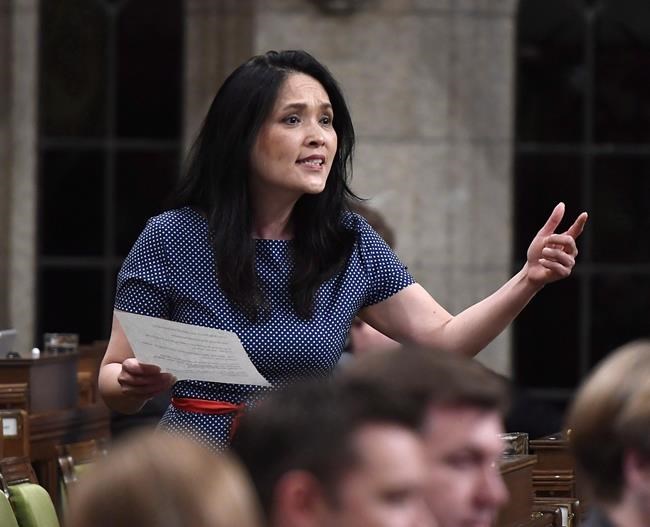OTTAWA — With a week until MPs return to Parliament Hill, the issue of safety is top of mind for some as the threat of political violence has been on the rise.
In October 2020, the House of Commons board of internal economyapproved funding for several initiatives to support and protect members, including evaluating security at their homes and providing mobile panic buttons.
While some MPs say the measures have helped, not all feel as reassured.
The initiatives came after Parliament's security service ramped up its presence on the precinct following reports of harassment against politicians, including NDP Leader Jagmeet Singh, who was followed by a man who attempted a citizen's arrest.
Jenny Kwan, NDP MP for Vancouver East, said she opted in to an expert security assessment of her home and it made her feel safer knowing the measures are up to par — not just for herself but also her family.
"For me, this is particularly important because in previous occasions, I've had threats where people came to my home and threatened my family, including my children," said Kwan.
Michelle Rempel Garner, Conservative MP for Calgary Nose Hill, said she is not even comfortable talking about specific security measures she has taken, out of concern for her own safety.
Rempel Garner was the target of harassment during the most recent federal election campaign, including death threats and being confronted while seated in a restaurant.
Rachel Bendayan, Liberal MP for Outremont, whose election signs were vandalized with antisemitic graffiti during the campaign, said she agrees that harassment must be addressed.
But she is "also wary of measures that would restrict constituents' access to their members of Parliament," Bendayan said in a written statement.
"Confidence in our democracy depends on elected officials remaining accessible and available to the people they represent. I look forward to engaging with all my colleagues in the House to ensure our workplaces remain both safe and accessible to Canadians."
Heather Bradley, the director of communications for the Speaker's office, said in a written statement that in recognition of its responsibility to provide a safe work environment for MPs, steps have been taken to support members' security needs outside the parliamentary precinct.
Bradley did not specify how many MPs have taken advantage of the new measures, but said that specific information about the programs is not shared publicly for security reasons.
Rempel Garner said steps need to be taken to curb harassment not just off-Hill, but among MPs as well.
"I think it's culturally acceptable to turn a blind eye if somebody is harassing somebody that's of a different political stripe. We have members of Parliament that engage in it," she said. "It's incumbent upon everybody in a leadership position in this country, be it in politics or industry or civil society, to help overcome those gaps."
Since those investments in security for MPs were made, the threat of political violence has been on the rise. Canada's federal election campaign saw acts of vandalism against candidates and vitriolic protests, including an incident where demonstrators threw gravel at Prime Minister Justin Trudeau.
The recent murder of British MP David Amess, who was meeting with constituents at the time, has stoked discussions on whether politicians are appropriately protected in their roles.
Rempel Garner said one way of tackling this issue may be for elected officials to lead by example.
"There needs to be some self-policing among people, in the general public and politicians included," she said. "Harassment against somebody that's on the opposite team should not be acceptable. If you see clear harassment, call it out."
NDP party whip Rachel Blaney said she thinks it's important for all members of Parliament to reflect on the political culture.
"We definitely have been watching not only some of the anger and frustration build for towards all politicians across Canada but quite frankly around the world and seeing some scary things happen," said Blaney.
Kwan said it's absolutely an additional stress factor to have to think about potential threats, not just to her but to her staff and family.
"It is something that nobody should have to deal with, but yet it is our reality."
Rempel Garner said finding solutions needs to focus on the cause rather than the symptoms of the escalated aggression and harassment.
"There needs to be a co-ordinated look at this rather than a scattershot approach with Band-Aid solutions, and it needs to happen quickly," she said.
Blaney added that more work needs to be done within and beyond Canada when it comes to how women politicians are perceived and treated.
"I do know that sometimes those personal attacks seem to be a little more focused on some of the women who serve. We need to continue to address that and find ways to confront any form of sexism that we see."
This report by The Canadian Press was first published Nov. 15, 2021.
———
This story was produced with the financial assistance of the Facebook and Canadian Press News Fellowship.
Erika Ibrahim, The Canadian Press




